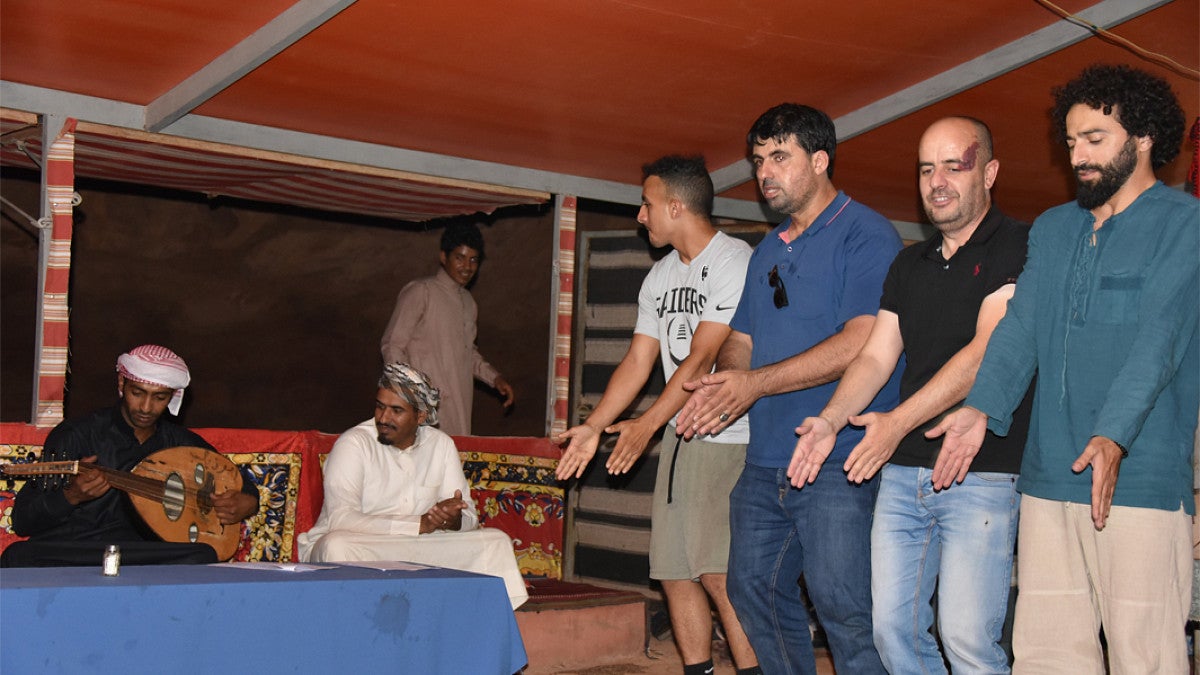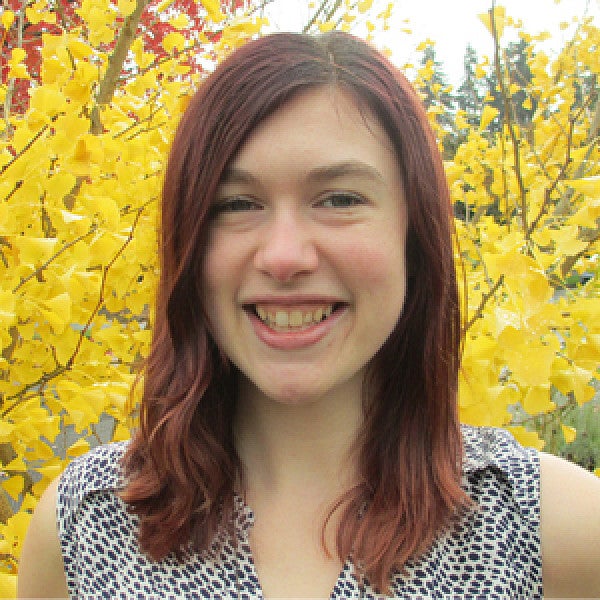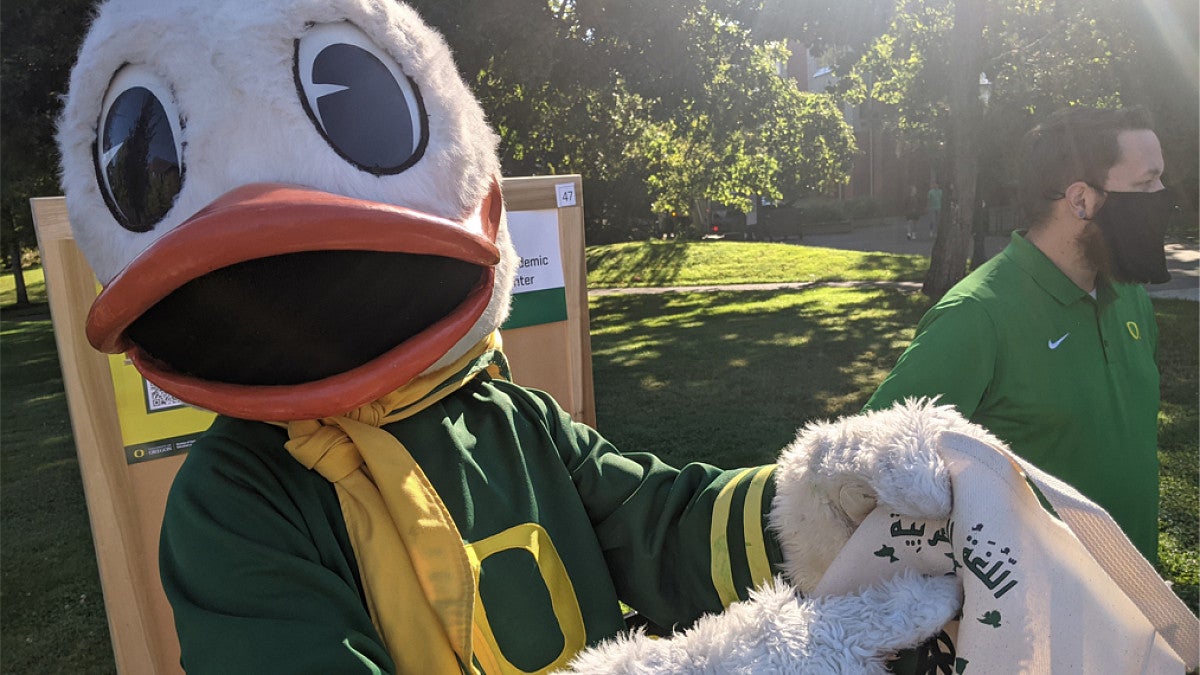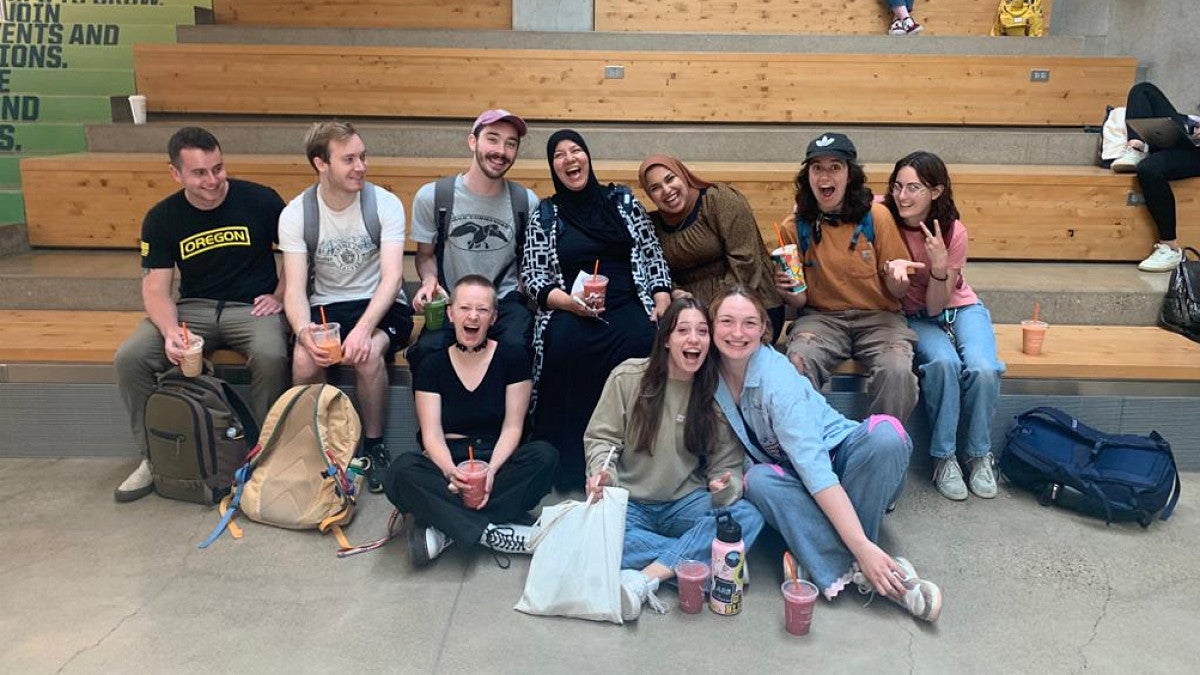Why Minor in Arabic Studies?
Arabic is among the five most common languages world-wide and is recognized by the United Nations as one of its six official languages. Knowledge of Arabic is useful for careers in law, journalism, business, and government.
University of Oregon’s program offers classes in Arabic language and culture in which each student's talents are developed through individual attention from the teaching faculty and program director. UO is among the few undergraduate programs nation-wide that offers courses in Arabic dialect, Modern Standard Arabic, and thematic courses in classical Arabic and Islamic studies open both to learners of Arabic and literate native speakers of Arabic.

Get Real-World Experience
Find out how a minor in Arabic studies can help in your chosen career field, and enhance your resume by studying Arabic in another part of the world.

Arabic Opens Up a New World
“The best part about learning Arabic is the people you meet. In Eugene I studied with some of the most amazing teachers—teachers willing to go above and beyond to help their students succeed. In summer of 2014 I studied in Oman. I was blown away by the kindness and hospitality I was shown, and the astounding culture I was exposed to.”
—Kyra Buckley, major in Journalism, minor in Arabic Studies, ‘15

Advising and Academic Support
Need help understanding your minor requirements or mapping out a career path? Schedule an appointment with an advisor and get your questions answered.
Departmental Advising and Support

Network with Your Peers
Join the Arab Student Union, an active club with discussion circles every Tuesday, or find another student group that aligns with your interests.
Bringing Important Stories to Light
“I’ve had to listen to some of the most harrowing stories I’ve ever heard since coming out here. One of the first interviews I had in Amman was at Collateral Repair Project with a Syrian man who was having visa issues because he had been forced to link up with a local faction of the Islamic State. When he attempted to escape the first time, he was tortured and finally managed to flee to Amman. While such stories are difficult to listen to, they serve as a reminder that if media outlets do not exist to share these experiences, the world isn’t going to have any understanding of what refugees go through before reaching Jordan and once they’ve made it.”
–Aaron Weintraub, Major in Journalism, Minor in Arabic Studies, ‘17

